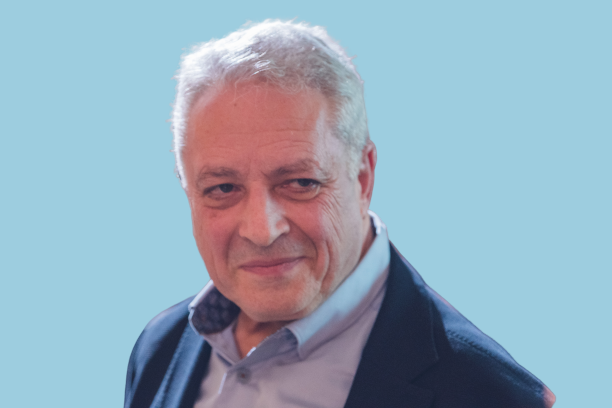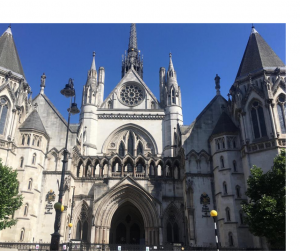

Howard Epstein

Spending most of his working life as a commercial lawyer, but with a wide-range of other legal work from which he saw the full extent of human behaviour and misbehaviour, Howard Epstein learned the difference between cynicism and honest criticism. Through all this work runs one three-ply thread: research, thorough research and more research. Howard does not kid himself that there is one truth to be unearthed but accepts that some explanations are more cogent, more credible and more accurate than others. Those are the stories – fictional or non-fiction – that he likes to tell: the ones that will withstand exploration and challenge.
Howard was born in December 1944 to third-generation English parents. Growing up in grey, gritty, grimy Manchester, a war baby and a baby-boomer, Howard remembers the bleak days of the fifties, the swinging sixties – marked by JFK avoiding nuclear holocaust, and his assassination the following year – the strenuous seventies – in which Britain became largely dysfunctional – the burgeoning eighties – driven by the dynamism of Margaret Thatcher – the improving nineties and the care-free noughties – that is until 9/11. The years that followed have seemed to him, not least after the Credit Crunch of 2008/9, the Age of Uncertainty. (The period following the arrival of the Covid-19 pandemic, he characterises as the Age of Insecurity.)
Told throughout his childhood and teens that he was unreasonably argumentative, Howard decided upon a legal career. The barrister’s life seemed too solitary, so he chose to become a solicitor and still loves his work, now into its second half-century. Over the decades, Howard developed his commercial practice, both contentious and non-contentious. He also lectured to university students on hi-technology in the legal profession and property law and practice, and to other professionals on acquiring and disposing of businesses. He is proud of saving several clients from the depredations of dissolute spouses and negligent professional advisors and would never turn down a deserving pro bono case.
He also wrote a book on negotiating settlements and deals, which he sees as an art as well as a science. He is never afraid to give it straight to a prospective client whose case is weaker that the client perceives. He says that being a northerner has contributed to his no-nonsense directness. Having said that, he is a determined compromiser and warns clients against turning down a good settlement if it can be coaxed out of the opponent. Only six trials have emanated from his work and they all ended in a complete satisfaction for his clients.
Howard’s first visit to New York opened his eyes to a country in which great wealth and abject poverty live cheek by jowl. His second-hand acquaintance with the Vietnam War (through books, movies and television) crowded in on him. Visiting Washington DC reawakened his memories of the work and assassination of Martin Luther King. Over that trip, he became fascinated with the travails of the American nation. He was struck by the number of traumas that Americans have suffered, and thrust upon themselves. When Howard got to research the Columbine massacre, light bulbs starting going off, prompting one great question: Why did the US have to go through so much, as compared with any other nation? This eventually led to his first major work: Traumatised Nation: How America got to be so violent.
The fascination with America was not yet sated. Having been brought up on stories of the Holocaust, and fascinated by the journey of Werner von Braun (the German father of rocketry), Howard took one chapter from Traumatised Nation and wrote his Sputnik book. This is a considered explanation of how the humiliation of the American nation at the launching of two Russian satellites was redeemed by the former Nazi, who thereby redeemed his own shame and put man on the moon by July 1969. Whilst this is an historical novel, it is nevertheless one that Howard insists is more factual than otherwise, for there are few central fictional characters driving the plot.
A novel, The Compartmentalist, about an English lawyer followed. This was something of a catharsis for Howard, which he insists is not autobiographical – as he was able to draw on various working life experiences. Packaged as a psychological thriller, is highly authentic as it has tropes and solutions with which he is intimately familiar.
Next, Howard woke one day to a news story about the trafficking of babies in Spain. It chimed with what he subconsciously knew, and had forgotten, about the plight of British children over several centuries. This led to another, profoundly-researched, book: Despoil the Child. He has written the first 80 page chapter about the British experience and is gathering opinion on whether he should expand it to three times its present length or write the global story to include the many countries where similar large scale child abuse has been perpetrated.
Howard’s books have, besides the painstaking research, another thing in common: whether they are fiction or non-fiction, they are page turners. (He has had complaints from readers that they should have been warned not to start reading too late at night, as they were unable to close them before the last page.) The language is not over-elevated but neither is it over-simple: Howard chooses every word, with care, for accuracy – yet each page flows into the next.
Asked what he is passionate about, Howard says his research, his writing and his work, classical music, opera and travel. His favourite country – away from home – is Italy and his favourite city is Florence. He says it is impossible to get enough of it.
Howard loves the seemingly mutually exclusive pursuits of cooking and travel, which has taken him many times to the Far East, where he became acquainted with less exclusivist religions than those of the West. This is a continuing source of fascination for him. Yet, his greatest focus has been on America.
Howard’s first visit to New York opened his eyes to a country in which great wealth and abject poverty live cheek by jowl. His second-hand acquaintance with the Vietnam War in the UK (through books, movies, and television) crowded in on him. Visiting Washington DC reawakened his memories of that and the work and assassination of Martin Luther King. Over that trip, he became fascinated with the travails of the American nation. He was struck by the number of traumas that Americans have both suffered and thrust upon themselves. Years later these thoughts, mingled with repeated reports of mass shootings in the States, crowded in on him and coalesced. He identified that America is uniquely afflicted by trauma and started research for his book on American traumas. Light bulbs went off in his head, prompting one great question: Why did the US have to go through so much, as compared with any other nation? This eventually led to his major work: Traumatised Nation.
The fascination with America was not yet sated. Having been brought up on stories of the Holocaust, and fascinated by the journey of Werner von Braun (the German father of rocketry), Howard took one chapter from Traumatised Nation – Sputnik and the Space Race – and wrote an historical novel: a considered explanation of how the humiliation of the American nation, by constantly being behind Soviet Russia, was redeemed by the German immigrant scientist. Howard insists that his story is more factual than otherwise, his few central fictional characters merely devices to elicit the facts. Finally, in the book and, America was redeemed when Man walked on the moon in July 1969, thanks to the genius of von Braun and the inspiration provided by President John F Kennedy.
A novel, The Compartmentalist, followed, about an English lawyer – a minor catharsis for Howard, as he was able to draw on various work-life experiences, which he packaged as a psychological thriller, with threats and solutions with which he was familiar.
Next, Howard awakened one day to a news story about the trafficking of babies in Spain. It chimed with what he subconsciously knew, and had forgotten, about the plight of British children over several centuries. This led to another, profoundly researched book: Despoil the Child.
Howard’s books have one thing in common, whether fiction or non-fiction: they are page turners. The language is not over-elevated, but neither is it too simple: Howard choses every word with care for accuracy – yet each page flows into the next. He has had complaints from readers that they should have been warned not to start reading too late at night. The books are all page-turners.
Howard remains passionate about the law, still working whilst writing. Whilst Traumatised Nation took him two years, The Compartmentalist was polished off in three months. Even so, he took care not to ascribe to his characters anything he had not experienced first-hand: again, diligent research in the interests of the writing.
Presently, Howard is working on two books: one about the mass trafficking and abuse of children by government and institutional bodies, which will be released (Dickens-style) episodically, available only from his website until complete; and the other about Hitler but with a fresh approach.
- email me
Customer Review
Lorem ipsum dolor sit amet, consectetur adipiscing elit. Sed sit amet facilisis urna. Praesent ac gravida libero. Donec non hendrerit arcu. T enim, sagittis eget suscipit et, eleifend eu orci. Nunc nec massa nec est interdum suscipit. Donec vel orci quis dolor sollicitudin volutpat. Mauris convallis metus eget tellus mollis euismod. Vestibulum dapibus odio at nisl consequat, in semper augue auctor. Duis risus felis, pulvinar quis tempus

Clarissa Wolman
"Vestibulum dapibus odio at nisl consequat, in semper augue auctor. Duis risus felis, pulvinar quis tempus vitae”

Lora Spielberg
"Vestibulum dapibus odio at nisl consequat, in semper augue auctor. Duis risus felis, pulvinar quis tempus vitae”

Christopher Brown
"Vestibulum dapibus odio at nisl consequat, in semper augue auctor. Duis risus felis, pulvinar quis tempus vitae”
